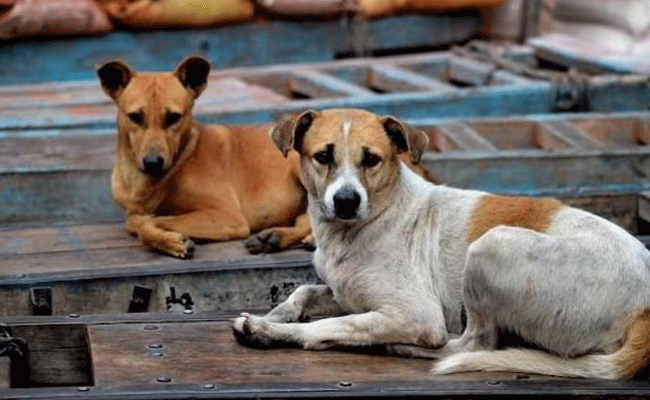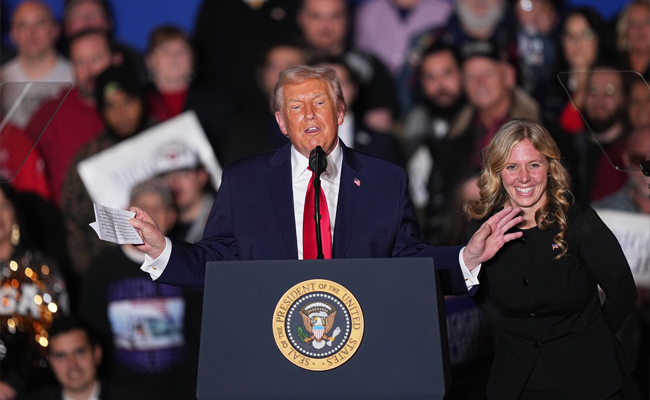Bangaluru: The Karnataka High Court, led by Chief Justice Prasanna B Varale and Justice Krishna S Dixit, voiced their disapproval regarding caregivers feeding stray dogs next to the gate of Vidhana Soudha, a significant area in Bangalore.
The court considered a lawyer's plea, urging the proper implementation of Animal Birth Control (Dogs) Rules. During the hearing, the bench expressed concerns about the practice, emphasizing the need for designated feeding spots to avoid creating chaos.
“Some areas which are important areas, including for safety reasons, certain citizens enter in this area...vehicle owners come next to the gate of Vidhana Soudha in vehicles with barrels, vessels full of some material. I don’t mind showing some sympathy to animals but not at the cost of chaos created...just next to the gate of Vidhana Soudha every morning at 6.45 some people came in vehicle may be some good people with good intention, but they bring some food material in the vehicle and feed to the dogs and birds and what not, everyday feature. Is it not health hazardous? Not causing disturbance?" the Bench observed
The Chief Justice highlighted that while the intention of providing food to stray dogs is commendable, feeding them near prominent areas could inconvenience passersby and residents. He referenced guidelines issued by the Animal Welfare Board of India in March 2021, urging caregivers to identify specific feeding spots for stray animals. The court also cited a 2015 guideline that suggested those feeding street dogs should actively participate in their sterilization and vaccination.
“The common experience is that except feeding of street dogs there is no incident being reported by corporation or public body that the citizens who feed stray dogs are coming forward to assist and help the corporation or public bodies in the exercise of sterilisation or vaccination of stray dogs,” the CJ said.
The court raised concerns about the State government's lack of response in the Public Interest Litigation (PIL) filed over a year ago. Despite seeking a final chance to reply in January, the government had not filed any response by the hearing date. The court expressed disappointment over the government's non-responsive approach and demanded a comprehensive reply, including remedial measures, within three weeks.
The court adjourned the hearing to November 15, warning that no further adjournments would be granted. It emphasized that if the government failed to file a reply, appropriate orders would be passed against the state authorities. The court stressed the importance of timely responses and instructed the government to ensure its law officers are promptly informed to avoid further delays.
The issue pertains not only to the feeding of stray dogs near Vidhana Soudha but also to other public areas, including Cubbon Park. The court highlighted the potential risks associated with feeding stray dogs in locations frequently used by schoolchildren, emphasizing the duty of citizens to ensure their activities do not pose threats to fellow citizens' safety and well-being.
"In morning hours, the internal road is used by school going children either for attending school or classes. Feeding stray dogs on undedicated locations would certainly cause some apprehension in the mind of school going children and the possibility of some stray dog rushing to school going children, cannot be ruled out...duty is cast upon such citizens to ensure that activity shall not cause hindrance or health hazard to his fellow citizens,” the Court observed.
Let the Truth be known. If you read VB and like VB, please be a VB Supporter and Help us deliver the Truth to one and all.
Itanagar (PTI): Eleven more bodies were retrieved on Saturday from the deep gorge in Arunachal Pradesh's Anjaw district, where a mini-truck on which 22 labourers from Assam were travelling fell, an official said.
With this, 17 bodies have been recovered from the accident site, Anjaw's deputy commissioner Milo Kojin said.
He said three more bodies will be brought out on Sunday.
The operation, being conducted by a joint team of the NDRF and Army, resumed at 6 am.
ALSO READ: Traffic fraud: Fake 'no-entry' sticker racket busted in Delhi, mastermind among 3 held
"The retrieval process was extremely difficult because of the treacherous terrain, and the gorge is very deep," Kojin said.
The operation was suspended around 4 pm due to low visibility and will be resumed on Sunday morning, he said.
"One person is still missing, and a search operation will be carried out tomorrow," he added.
The accident happened on the evening of December 8, around 40 km from Hayuliang towards Chaglagam in the district. On the evening of December 10, one survivor managed to climb out of the gorge and reach a nearby Border Roads Task Force (BRTF) labour camp, following which the authorities were alerted.
Six bodies were recovered from the gorge on Friday and handed over to their families on Saturday.





